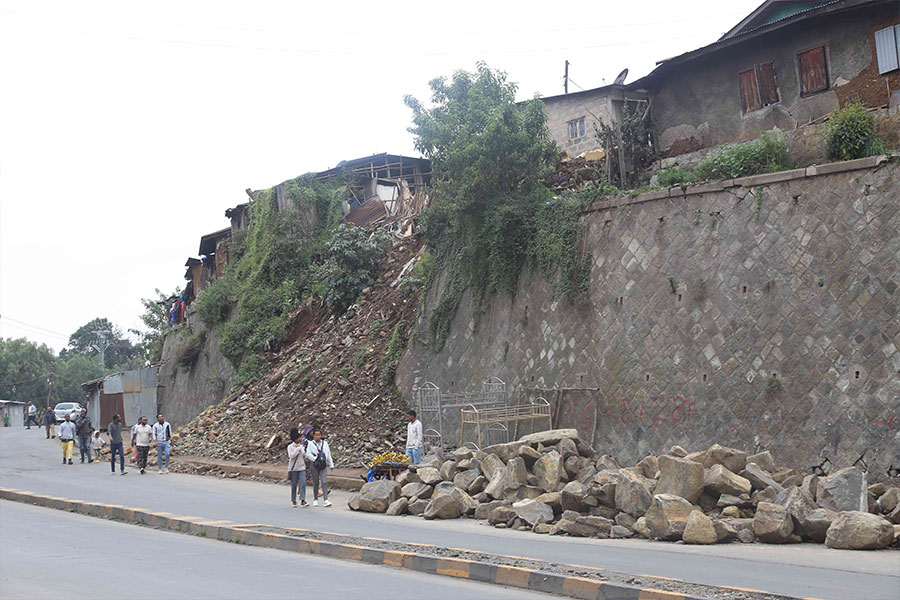
View From Arada | Apr 30,2022
It was with a bit of pride I used to show my friends the single deck Icarus buses on the roads, a Hungarian model primarily employed by the Anbessa City Bus Service. They were used to serve as government enterprises’ employee transport.
It was the 1980s, and we used to hitchhike to Aqaqi, mostly on Sundays. Just the thought of getting a lift on those buses was like walking on air to us. Yet, buried in one of our friend’s deep pockets would be 25 cents set aside for our return bus fare for each of us. Our leisurely day never gets complete before a relentless wait in a long queue and being on board the last bus leaving Aqaqi on the day. As such, our love affair with Anbessa buses was born.
Over a decade ago, I was employed at a public enterprise, later privatised, that used to own the old Icarus buses. The first question I asked the relevant authorities was if the old model bus was still operational, and learned that it was retired some years before for lack of key component parts. However, the company’s new vehicle fleet was well looked after, even though it faced similar hardships of securing spare parts.
It was all down to one service technician; his name is Siltan. He was an authority, on dedication to one's profession, and being of maximum service to an employer. Indeed, his name means ”authority” in English and proved how one could be in charge of a company, no matter one's position in it.
I was amazed not because the company, which always struggled to break even, was not a great payer in terms of salary. It was not even because the company did not have a state-of-the-art workshop or did not employ enough workers. Yet, the service technician had a routine that every vehicle operator willingly adhered to: if a vehicle breaks down and is under maintenance, they needed to come and assist in its care and, in the meantime, record and analyse what went wrong.
I was reminiscing about this as I awoke, rather was reawakened, some time ago. Amidst the spasmodic tingle in my ear and a twanging headache, I tried to piece together what happened the previous night on a very unusual outing.
I was approaching a traffic light while returning home after visiting a supermarket. I was on the left side of the road walking as a number of workers came out from their night shift. Then, two trucks took precedence on the left lane, over speeding. An Anbessa bus with no passengers looked to be yielding as it had been pushed to the right. Yet, it was only until it got far from the traffic light. It roared with an earsplitting deafening blast, which pushed all of us to the side of our walkway, locked horns with the trucks and continued the chase until they disappeared from our eyesight. All the drivers were young males.
As I was crossing the traffic light, a young girl came out from one of the crossroads and headed in the direction of the incident, with no need to rush. It brought first the earlier assumption of the accident proneness concept, though it was later dropped. Yet, Anbessa’s or the two truck’s drivers need to learn from such incidents. A few seconds earlier and they would have run her over.
As leading traffic experts suggest, a bus system that is fast, frequent, and reliable is overdue in Addis, as buses can and should be the cornerstone of urban transportation. They offer affordable mobility. It should be about time that the roads are prioritised for bus transport, as in a bus rapid transit (BRT), instead of forcing them to compete for space with vehicles that transport a much lower number of passengers.
In the same token, although it is good news that there are efforts to digitise the transport system and many other government services, it is time they empower employees such as Siltan. With their zeal, they are contagious and influence others to support the efficiency of Addis Abeba's transport system.
PUBLISHED ON
Feb 05,2022 [ VOL
22 , NO
1136]


View From Arada | Apr 30,2022

Agenda | Jul 07,2024

Editorial | May 16,2020

View From Arada | Apr 27,2024

Fortune News | Jul 17,2022

Dec 22 , 2024 . By TIZITA SHEWAFERAW
Charged with transforming colossal state-owned enterprises into modern and competitiv...

Aug 18 , 2024 . By AKSAH ITALO
Although predictable Yonas Zerihun's job in the ride-hailing service is not immune to...

Jul 28 , 2024 . By TIZITA SHEWAFERAW
Unhabitual, perhaps too many, Samuel Gebreyohannes, 38, used to occasionally enjoy a couple of beers at breakfast. However, he recently swit...

Jul 13 , 2024 . By AKSAH ITALO
Investors who rely on tractors, trucks, and field vehicles for commuting, transporting commodities, and f...

Nov 1 , 2025
The National Bank of Ethiopia (NBE) issued a statement two weeks ago that appeared to...

Oct 25 , 2025
The regulatory machinery is on overdrive. In only two years, no fewer than 35 new pro...

Oct 18 , 2025
The political establishment, notably the ruling party and its top brass, has become p...

Oct 11 , 2025
Ladislas Farago, a roving Associated Press (AP) correspondent, arrived in Ethiopia in...